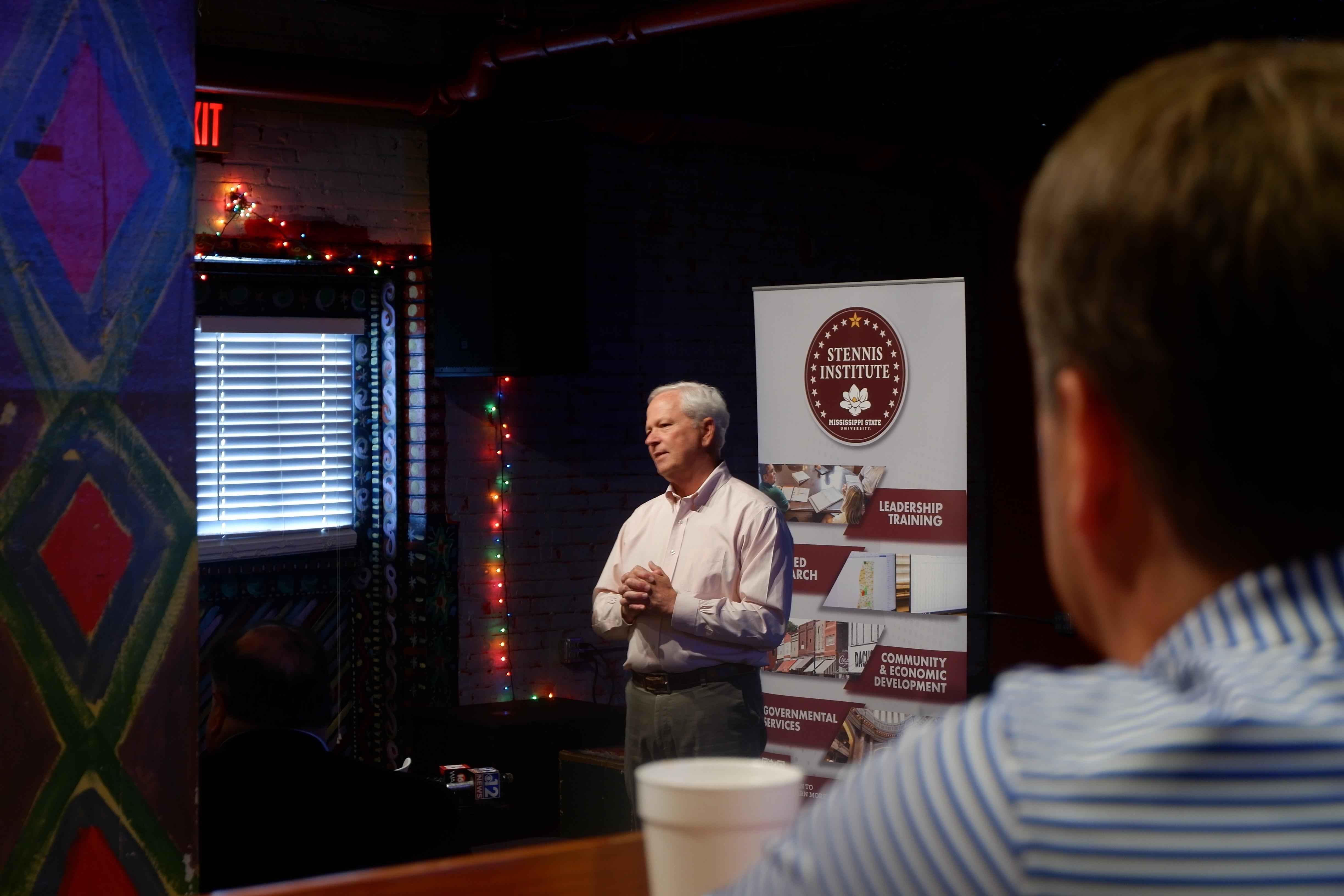Appointed after Jackson's drinking water system failed due to flooding from heavy rains last summer, Henifen has spent six months diagnosing a scope of issues, ranging from infrastructure to revenue generation, that have plagued the system for years.
Yesterday, dozens gathered at a popular eatery in downtown Jackson to hear about his progress at the water utility so far and plans moving forward.
One of his priorities is billing. At least 7,000 properties across Jackson are using water without an account on record, According to Henifin, meaning revenue collected via monthly billing is also missing. He expects the full survey on these properties to be completed by the end of the summer, allowing them to eventually enforce rate payments which will then be reinvested into the system.
Henifin says this will allow Jackson’s public drinking water to become financially self-sufficient rather than requiring federal funds.
As part of a $600 million appropriation in this year’s federal budget, JXN Water — the corporation Henifin formed to reorganize Jackson’s water system — will soon receive more than $100 million to begin implementing infrastructure projects.
“I applied for $115 million of that in grant money to take care of some of the early priority projects. That grant has been awarded and I’ve spent that on leak repairs and engineering work that’s going on. So a lot of things are happening. You may not see a lot of that yet but we’ve really rebuilt how the water system is being operated,” he said.
Included in those operational changes was the decision to contract the country's largest water treatment firm, Jacobs Solutions, to run both of the city's treatment plants on a six month basis. Without reliable plant information from previous operators, Henifin says he was hesitant to enter into a longer agreement until the full picture became clear. One of the main issues they found, according to Henifin, are widespread leaks throughout the system — up to 30 million gallons per day.
“We should not need more than 20 million gallons of water, yet we’re putting close to 50 into the system everyday. That’s because we have leaks everywhere — big leaks that we haven’t even found. And there’s dozens, probably close to a hundred smaller leaks all over the city at meter boxes. We’re used to seeing it just constantly flowing all the time.”
Henifin added he hopes to finalize a 10-year contract with the firm by the end of September.



